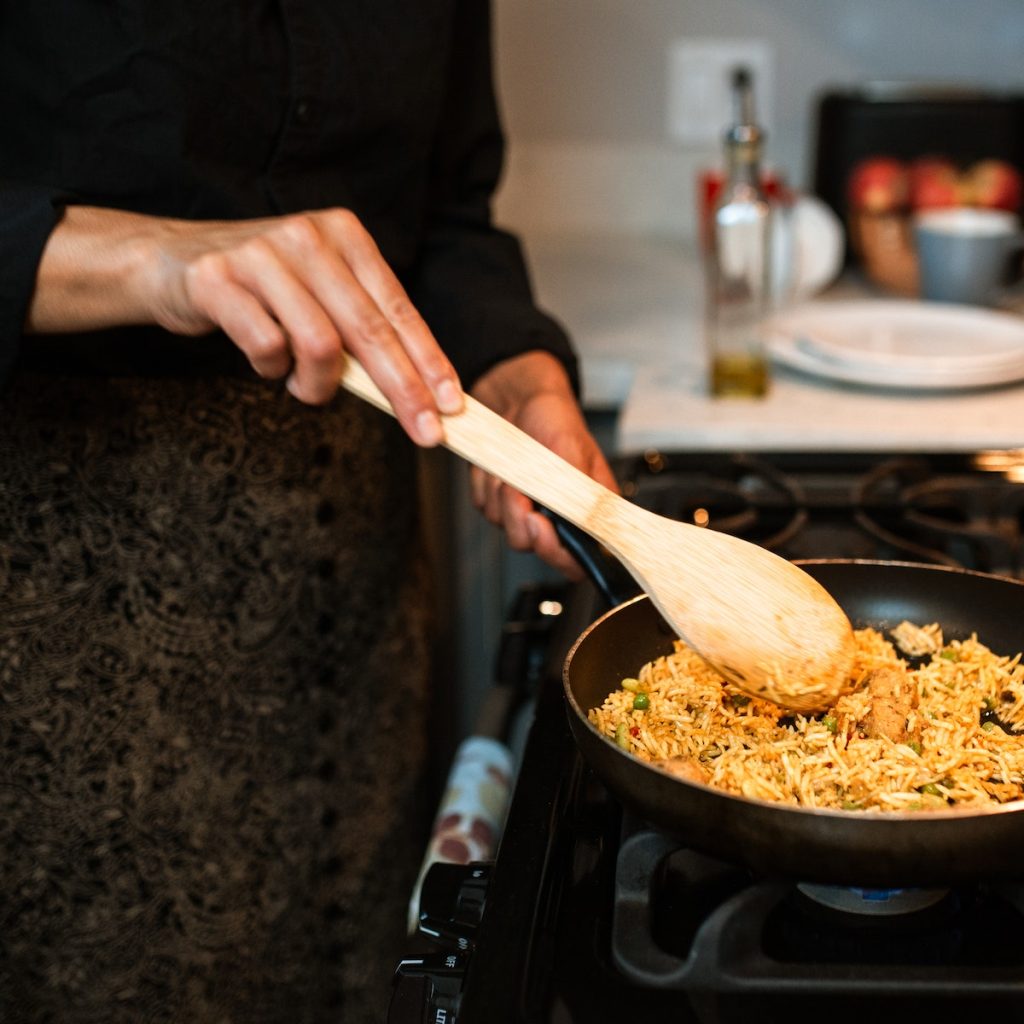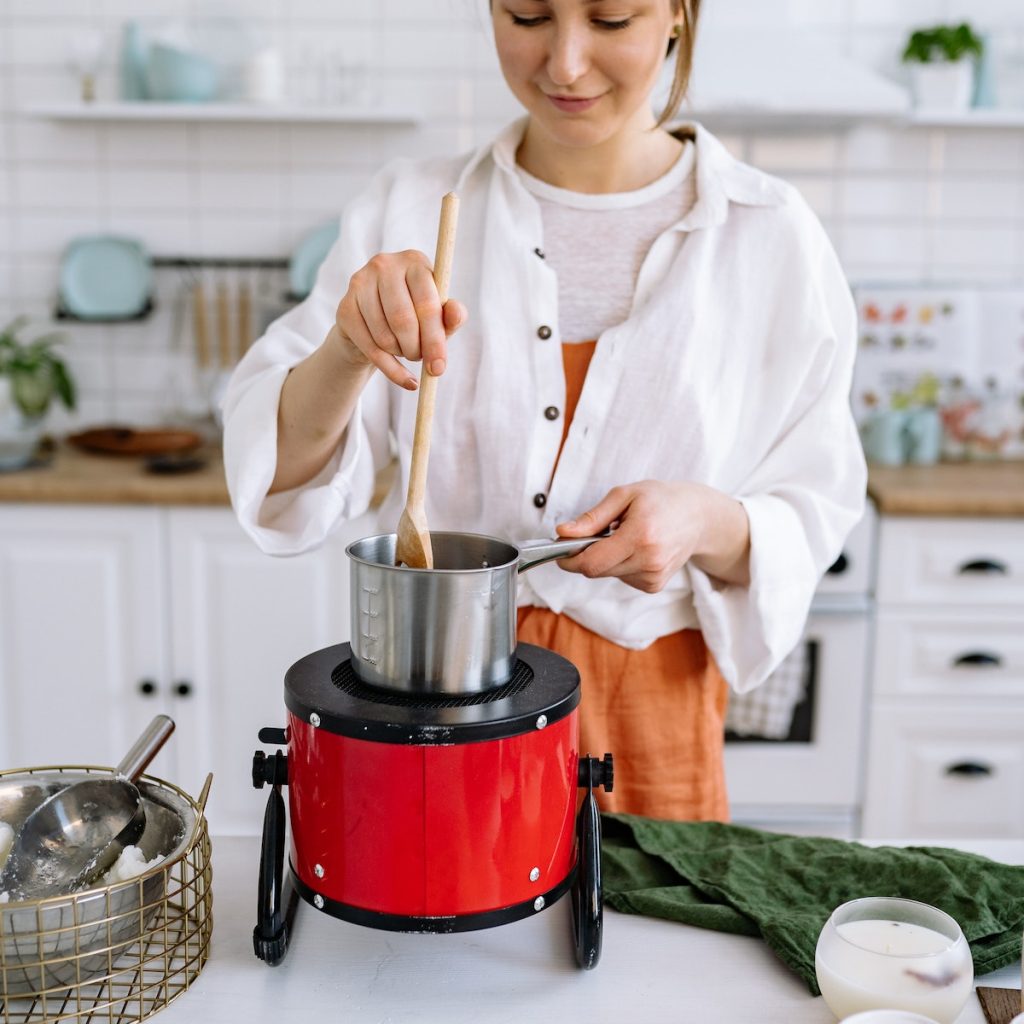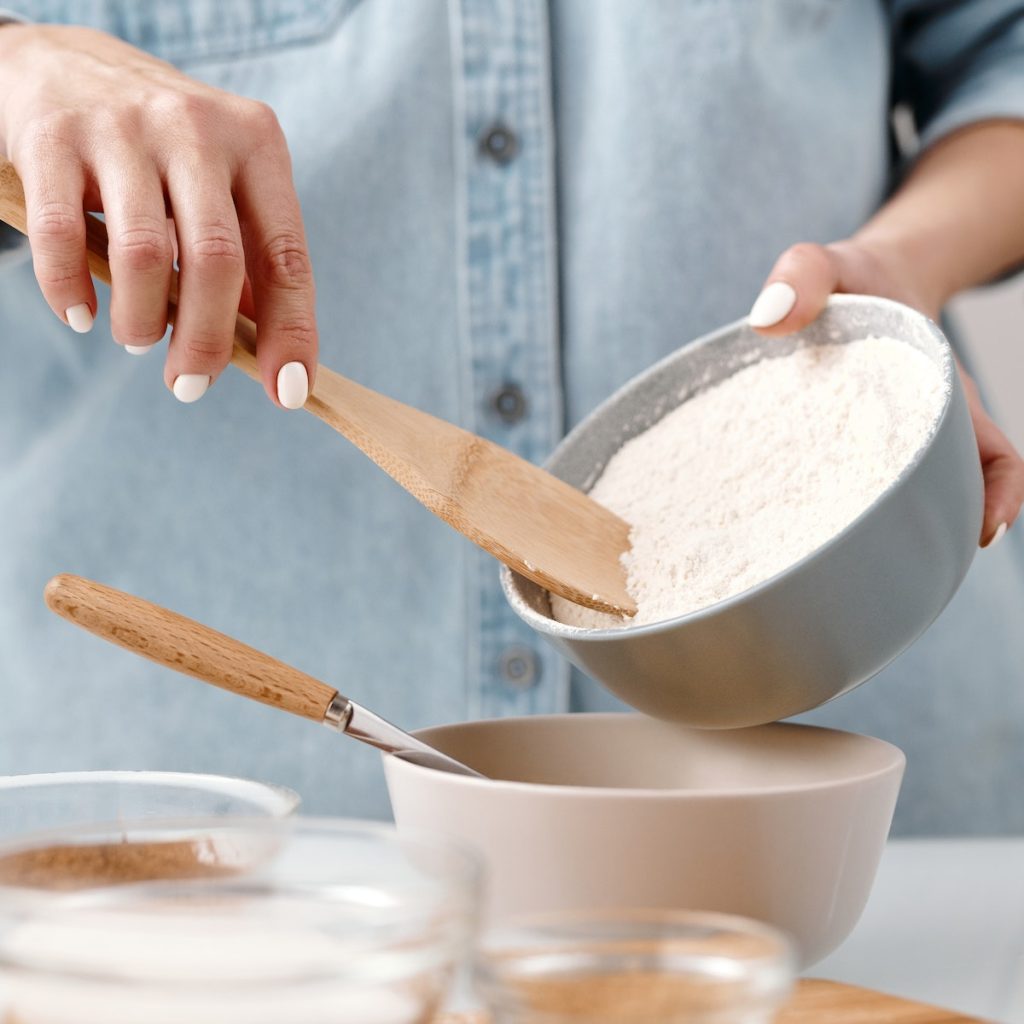If you’re wondering, “Why use a wooden spoon instead of a metal spoon?” we’ve got the answers for you.
Wooden spoons are not only gentle on your cookware, but they also don’t conduct heat, making them a safe option.
Additionally, wooden spoons are versatile and multi-functional, perfect for all your cooking needs.
And let’s not forget the natural and rustic aesthetic they bring to your kitchen.
Discover the benefits and answers to “Why use a wooden spoon instead of a metal spoon” in this article.
Key Takeaways to Why Use a Wooden Spoon Instead of a Metal Spoon
- Wooden spoons protect cookware from scratches and damage, making them ideal for delicate cookware like non-stick pans or enamel-coated pots.
- Wooden spoons have low thermal conductivity compared to metal spoons, making them a safer option for handling hot pots and pans.
- Wooden spoons can be used for stirring, mixing, and scraping ingredients and are suitable for both hot and cold dishes.
- Wooden spoons enhance the natural and rustic aesthetic of the kitchen, adding warmth and charm with their natural colors and grain patterns.
Wooden Spoons Are Gentle on Cookware

Why Use a Wooden Spoon Instead of a Metal spoon? Wooden spoons protect your cookware from scratches and damage. Unlike metal spoons, which can leave marks and scrape the surface of your pots and pans, wooden spoons are gentle and non-abrasive. This is particularly important when using delicate cookware, such as non-stick pans or enamel-coated pots, as these surfaces can easily be damaged by rough utensils.
The smooth and rounded edges of wooden spoons ensure that they won’t scratch or chip the coating, preserving the integrity of your cookware for longer. Additionally, wooden spoons are less likely to conduct heat, reducing the risk of burning your hands while cooking. This makes them a safer option and allows for comfortable handling.
Wooden Spoons Don’t Conduct Heat

When using a wooden spoon instead of a metal one, you won’t have to worry about conducting heat. Wooden spoons have a low thermal conductivity compared to metal spoons, meaning they don’t transfer heat as easily.
This is beneficial when stirring hot liquids or cooking delicate foods that require gentle heat. The insulating properties of wood help to protect your hands from burns, as the handle remains cool even when the spoon is used in a hot pot or pan.
Additionally, wooden spoons won’t react with acidic ingredients like metal spoons can, preventing any unwanted flavors or chemical reactions in your food.
Wooden Spoons Are Versatile and Multi-Functional

You can use a wooden spoon for a wide range of tasks in the kitchen, making it a versatile and multi-functional tool. Its sturdy construction allows for stirring, mixing, and scraping ingredients in both hot and cold dishes.
The smooth and rounded edges of a wooden spoon make it suitable for delicate tasks such as folding in ingredients, as well as for scraping the bottom of pots and pans to prevent food from sticking.
Its long handle provides a comfortable grip and allows for reaching into deep pots without the risk of burning your hand.
Additionally, wooden spoons are non-reactive, meaning they won’t affect the taste or color of your food.
From sautéing to baking, a wooden spoon is an essential tool that can handle various culinary tasks with ease.
Wooden Spoons Are Safer for Non-stick Pans
To ensure the longevity of your non-stick pans, it is recommended to use a gentler alternative, such as a wooden spoon. While metal spoons may scratch the surface of non-stick pans, wooden spoons provide a safer option that protects the integrity of the coating. The smooth surface of wooden spoons prevents any potential damage to the non-stick layer, ensuring that your pans last longer. Additionally, wooden spoons do not conduct heat as efficiently as metal spoons, reducing the risk of accidentally burning your hand while cooking.
Here is a table that compares the benefits of using a wooden spoon instead of a metal spoon for non-stick pans:
| Wooden Spoon | Metal Spoon |
| Gentle on nonstick pans | Durable in high temperatures |
| Protects coating | Sturdy and durable |
| Does not conduct heat | Versatile for different types of cooking |
| Less likely to scratch | Easy to clean |
Wooden Spoons Bring a Natural and Rustic Aesthetic to Your Kitchen
The natural and rustic aesthetic of your kitchen can be enhanced by incorporating wooden spoons into your utensil collection. Wooden spoons bring a touch of warmth and charm to your kitchen decor with their natural colors and grain patterns. Unlike their metal counterparts, wooden spoons have a unique, organic beauty that adds character to any kitchen style, from farmhouse to modern.
The natural variations in wood make each spoon one-of-a-kind, adding a sense of authenticity and craftsmanship to your cooking space. Whether displayed in a utensil holder or hanging on a hook, wooden spoons create a visually pleasing focal point in your kitchen.
Their earthy tones and textures complement other natural materials, such as stone countertops or ceramic dishes, creating a cohesive and inviting atmosphere. So, if you’re looking to add a touch of natural beauty to your kitchen, consider incorporating wooden spoons into your decor.
So that’s it. I hope this article answers your question on “Why use a wooden spoon instead of a metal spoon.”







Konnichiwa! (Hello!) I'm Pat Tokuyama, a Japanese tofu cookbook author, who travels for music, food, and adventure. If you like Japanese tea, checkout some of the newestorganic japanese tea, matcha bowls and noren and more!
** Curious about the Plant Based Japanese Cooking Club? ** Learn more here!